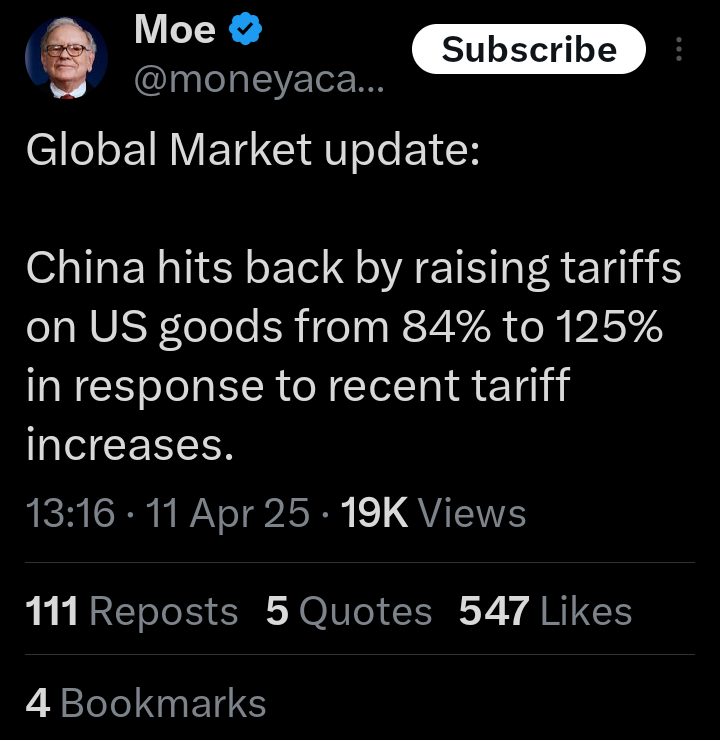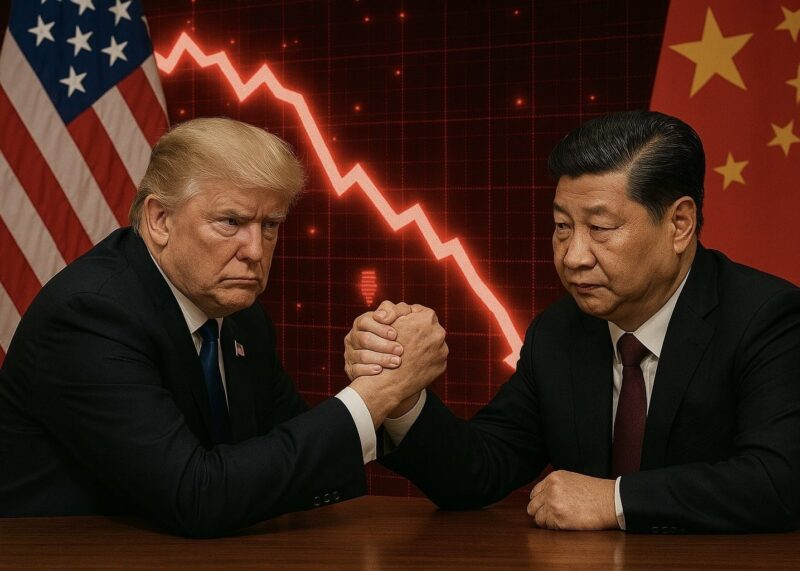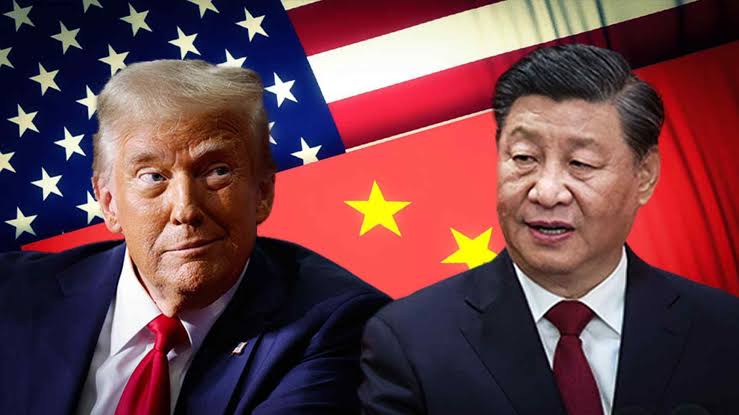China has announced a major increase in tariffs on American goods, raising them from 84% to 125%. This decision, which will take effect on April 12, 2025, follows the U.S. move to raise tariffs on Chinese imports to 145%. The move marks another step in a growing trade war between the world’s two largest economies.
Both countries continue to accuse each other of unfair trade practices, with no end in sight to the dispute.
Background of the Trade Conflict
The trade tensions between China and the U.S. are not new. The conflict began in 2018 and has involved multiple rounds of tariff increases. These taxes are placed on imports to make them more expensive, and they are often used to protect local industries or as a form of pressure during trade disputes.
In recent weeks, tensions have sharply increased. The U.S. raised tariffs on Chinese goods from 104% to 145%, claiming China is using unfair methods such as subsidies and forced technology transfers.
In response, China raised its tariffs on U.S. goods from 34% to 84%, and now to 125%.

Effects on Businesses and Consumers
The impact of this tariff war will be felt by ordinary people and businesses in both countries. For American farmers, the higher Chinese tariffs could mean big losses. Products like soybeans, pork, and beef will now be too expensive for many Chinese buyers.
This could hurt many farmers who depend on exports to China. On the other hand, Chinese consumers will see a sharp increase in prices for American goods, such as aircraft parts, electronics, and luxury items.

This could also hurt American companies like Boeing and major tech exporters, who might lose their customers in China.
Many businesses also rely on parts and goods from both countries. With tariffs rising, it may become difficult and expensive to keep factories running smoothly. Some companies may try to move production to other countries to avoid the tariffs, but this is not easy and can take a long time.
Global Impact
This trade war does not just affect China and the U.S. Many other countries depend on trade with these two giants. If their conflict continues, global supply chains could be disrupted. Prices could rise worldwide, and there could be a slowdown in economic growth.
Some experts now warn that if the fight continues, there is a real risk of a global recession. Already, stock markets in Asia and Europe have reacted nervously to the news, with some falling sharply after the announcements.
No End in Sight
For now, there is little sign that either country is ready to step back. Both are accusing the other of acting unfairly. The U.S. says it is standing up for fair trade, while China says it is defending itself from American aggression.
Even though talks between the two countries are still possible, the current mood suggests that an agreement is not close. Both sides are under political pressure, and they may prefer to appear strong rather than compromise.
China’s new 125% tariff on U.S. goods marks a serious turn in the trade war. It could lead to more expensive goods, weaker economies, and job losses in both countries. Other parts of the world may also suffer as supply chains break down and prices rise.
Unless both sides return to the negotiating table soon, the economic damage could become even worse in the coming months.





















Add Comment